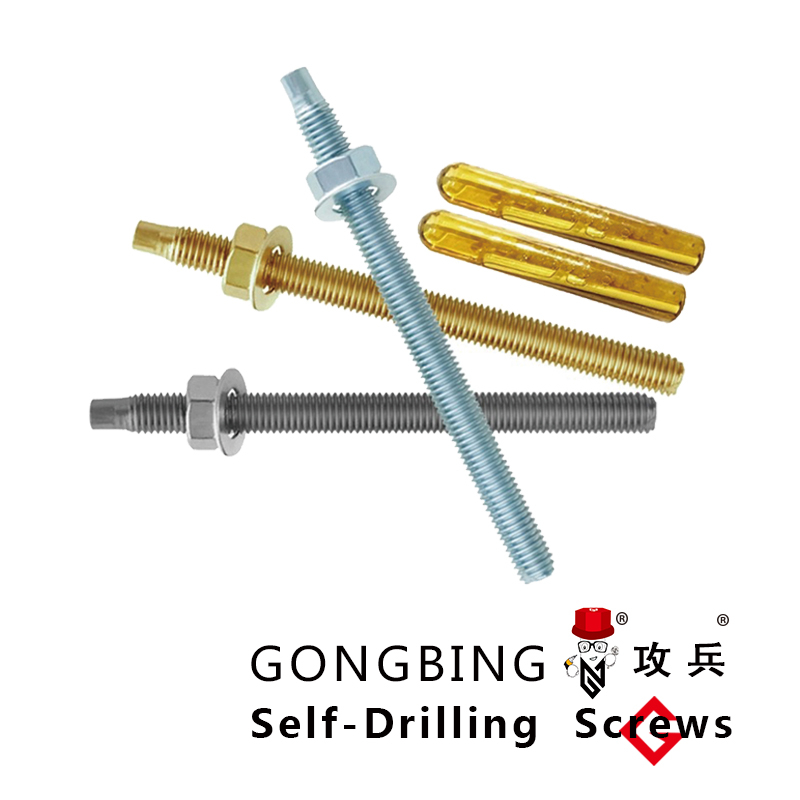Understanding Self-Drilling Anchor Bolts and Their Applications in Construction and Engineering
Self-Drilling Anchor Bolts Enhancing Stability and Efficiency in Construction
In the world of construction and civil engineering, the stability and safety of structures are of paramount importance. One of the key elements that contribute to this stability is the anchoring system employed in various projects. Among the innovative methods to ensure strong anchoring in soil and rock conditions, self-drilling anchor bolts have gained significant attention.
What are Self-Drilling Anchor Bolts?
Self-drilling anchor bolts are specialized fasteners designed to penetrate soil or rock automatically. Unlike traditional anchor systems that require pre-drilled holes, these bolts integrate the drilling process directly with the anchoring function. This dual capability significantly streamlines construction processes, reduces labor costs, and improves overall project efficiency.
The Mechanism of Self-Drilling Anchor Bolts
Self-drilling anchor bolts are equipped with a drill bit at one end, allowing them to bore into the ground as they are installed. Once the bolt is rotated, the helical design of the tip enables it to cut through various geological materials, including dense soils and soft rock. This design minimizes the time and effort typically required to prepare the site for anchoring.
Upon reaching the desired depth, the anchor can be grouted or filled with concrete, providing a stable and secure connection. This method is particularly advantageous in urban settings where space is limited and noise regulations are strict, as it often leads to quieter operations compared to traditional drilling methods.
Applications of Self-Drilling Anchor Bolts
Self-drilling anchor bolts are versatile and find applications in a wide range of projects, including
1. Slope Stabilization In landslide-prone areas, these anchors are used to stabilize slopes by securing structures to the ground, thereby preventing soil movement.
2. Temporary Support During excavation or construction, self-drilling anchors provide temporary support for retaining walls, allowing safe access to deep foundations.
self drilling anchor bolt

3. Mining Operations In mining, these anchors are essential for creating safe ground conditions, particularly in underground operations where rock stability is critical.
5. Tunneling Projects When constructing tunnels, these anchors play a crucial role in supporting the tunnel walls and preventing collapses during and after the construction phase.
Benefits of Using Self-Drilling Anchor Bolts
The adoption of self-drilling anchor bolts offers several benefits
- Efficiency The ability to drill and anchor simultaneously saves time, enabling faster project completion.
- Cost-Effectiveness By reducing labor and equipment requirements, these bolts help lower overall project costs.
- Versatility Suitable for a variety of soil and rock conditions, self-drilling anchor bolts accommodate a wide range of engineering applications.
- Increased Safety Enhanced stability provided by these anchors reduces the risks associated with construction-related hazards, protecting both workers and equipment.
Conclusion
Self-drilling anchor bolts represent a significant advancement in anchoring technology, providing essential solutions for various construction challenges. Their innovative design not only optimizes efficiency but also enhances the safety and stability of structures. As construction practices continue to evolve, the integration of self-drilling anchor bolts will likely become more prevalent, reflecting the ongoing commitment to innovation and safety in the industry. With their broad applications and distinct advantages, these anchors are poised to play a crucial role in the future of civil engineering and construction.
-
Weatherproof Plastic Expansion Anchors for OutdoorNewsJun.06,2025
-
Sustainability in the Supply Chain: Eco-Friendly TEK Screws ProductionNewsJun.06,2025
-
Load-Bearing Capacity of External Insulation FixingsNewsJun.06,2025
-
Double Head Bolts: Enhancing Efficiency in Industrial MachineryNewsJun.06,2025
-
Corrosion Resistance in Chipboard Screws: Coatings for Wholesale DurabilityNewsJun.06,2025
-
Butterfly Toggle Bolts : Enhancing Structural ResilienceNewsJun.06,2025
